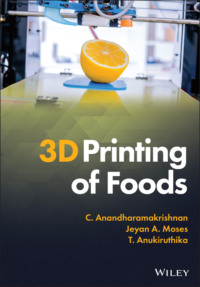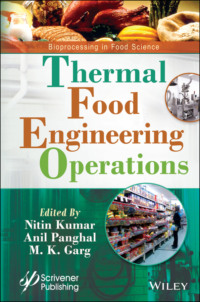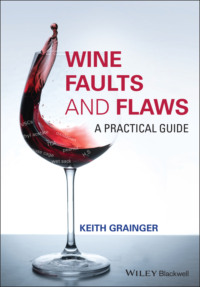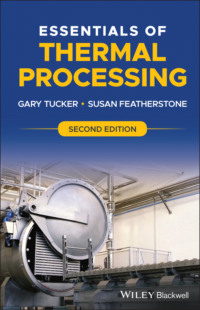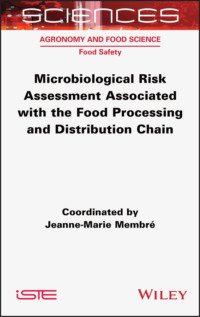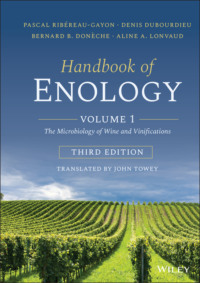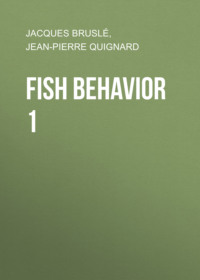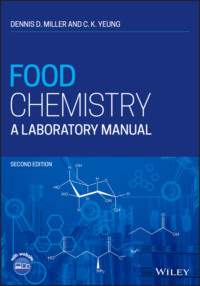Книги жанра мукомольное производство
[b]3D Printing of Foods[/b] <[b]Explore the fascinating realm of 3D food printing and its applications [/b] In [i]3D Printing of Foods[/i], a team of distinguished researchers delivers a comprehensive and eye-opening exploration of the rapidly developing field of 3D food printing. In the book, the authors offer readers an examination of “food printability,” the foundation of 3D food printing. T…
[b]Thermal Food Engineering Operations[/b] [b]Presenting cutting-edge information on new and emerging food engineering processes, [i]Thermal Food Engineering Operations[/i], the first volume in the new series, “Bioprocessing in Food Science,” is an essential reference on the modeling, quality, safety, and technologies associated with food processing operations today. [/b] As the demand for healthy…
[b]An essential guide to the faults and flaws that can affect wine[/b] Written by the award-winning wine expert, Keith Grainger, this book provides a detailed examination and explanation of the causes and impact of the faults, flaws and taints that may affect wine. Each fault is discussed using the following criteria: what it is; how it can be detected by sensory or laboratory analysis; what the c…
[b]ESSENTIALS OF THERMAL PROCESSING[/b] [b]Explore this fully updated new edition of a practical reference on food preservation from two leading voices in the industry[/b]Among all food preservation methods in use today, thermal processing remains the single most important technique used in the industry. The newly revised Second Edition of [i]Essentials of Thermal Processing[/i] delivers a thoroug…
According to the World Health Organization, one in every ten people worldwide falls ill from eating contaminated food every year, with 550 million cases of diarrheal diseases. Microbiological risk assessment aims to characterize the nature and probability of harm resulting from human exposure to the biological agents that are present in foodstuffs. This assessment must take into account all stages…
As an applied science, enology is a collection of knowledge from the fundamental sciences including chemistry, biochemistry, microbiology, bioengineering, psychophysics, cognitive psychology, etc., and nourished by empirical observations. The approach used in the[i] Handbook of Enology[/i] is thus the same. It aims to provide practitioners, winemakers, technicians and enology students with foundat…
As an applied science, enology is a collection of knowledge from the fundamental sciences including chemistry, biochemistry, microbiology, bioengineering, psychophysics, cognitive psychology, etc., and nourished by empirical observations. The approach used in the[i] Handbook of Enology[/i] is thus the same. It aims to provide practitioners, winemakers, technicians and enology students with foundat…
Advances in underwater exploration, in situ observation of fish populations, as well as the development of cutting-edge technologies, provide modern insights into behaviors and strategies of fish, whose cognitive abilities have long been underestimated and undervalued. Fish Behavior 1 presents current knowledge about fish biology, ecology and ethology. In light of the most recent scientific work, …
[b]FOOD CHEMISTRY[/b] [b]A manual designed for Food Chemistry Laboratory courses that meet Institute of Food Technologists undergraduate education standards for degrees in Food Science[/b] In the newly revised second edition of [i]Food Chemistry: A Laboratory Manual[/i], two professors with a combined 50 years of experience teaching food chemistry and dairy chemistry laboratory courses deliver an …
Учебное пособие разработано в соответствии с требованиями основной образовательной программы подготовки бакалавров по направлению «Продукты питания из растительного сырья», профилю «Технология хлеба, кондитерских и макаронных изделий». Оно предназначено для закрепления теоретических знаний дисциплин профессионального цикла. В пособии описываются работы по оценке качества сырья, полуфабрикатов, гот…
